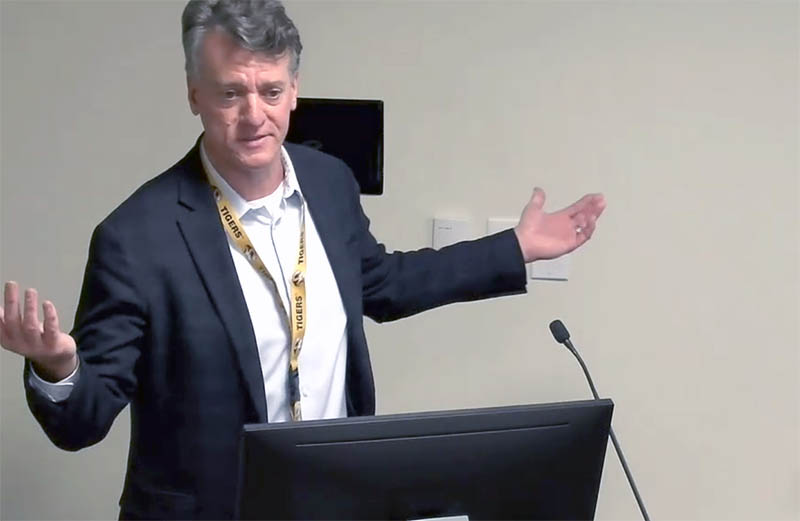March 27, 2022

The technology that powers your smart phone could also improve your morning commute. That’s because artificial intelligence, machine learning and other emerging systems are being adapted to better maintain roads and bridges.
That was the theme of the first International Data Science for Pavements Symposium, a three-day event held last week in McLean, Virginia, and virtually. The Missouri Center for Transportation Innovation (MCTI), Federal Highway Administration and University of New Hampshire sponsored the symposium.
“Machine learning is changing the world in many fields,” Bill Buttlar said. “In transportation, it can eliminate human error and allow us to use data to make our journeys safer and faster.”
Buttlar is Glen Barton Chair in Flexible Pavement Technology in the Department of Civil and Environmental Engineering, director of MCTI and a co-organizer of the event.
During a keynote address, Buttlar gave an overview of the importance of data for transportation systems. The information is already being collected — to the tune of terabytes of data, he said — however, civil engineers must understand how to organize and make sense of that information.
“We’re collecting a lot of data, and we are going to have to think about how to use that,” Buttlar said. “Industry, government and academia are going to have to work together on our vision and share those goals with data scientists so they know what information we need.”
At Mizzou Engineering, Buttlar and Assistant Professor Yaw Adu-Gyamfi are already incorporating artificial intelligence and machine learning in their research.
In Kansas City, for instance, the two are testing a mobile app that city workers mount on vehicle dashboards to record videos of roads as they drive. From those video clips, a machine can be trained to recognize and identify various types of cracks. In another instance, Gyamfi is streamlining cloud-based traffic data to allow different agencies to better work together. And Buttlar has used smartphones to estimate the quality of road and bridge surfaces.
Machine learning, Buttlar said, will be a “game changer” when it comes to monitoring pavements, giving those in the field more real-time information about how and where surfaces might be failing.
Following the keynote, symposium attendees had the opportunity to delve deeper into specifics of data science and artificial intelligence around asphalt materials, pavement evaluation and using modeling to predict effectiveness of designs and treatments. The event concluded with Buttlar leading a vision planning session to allow participants to discuss next steps.
“The symposium was a great way to get everyone in the room to start talking about how Big Data can improve our roadways,” Buttlar said. “We’re excited about the discussions and connections that were made. We look forward to seeing new projects and ideas emerge from this inaugural event.”
Be part of a forward-thinking civil engineering program. Learn more about programs at Mizzou Engineering!